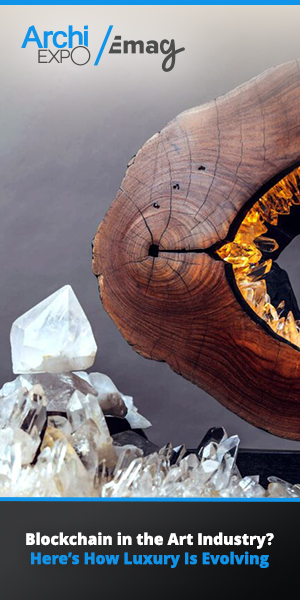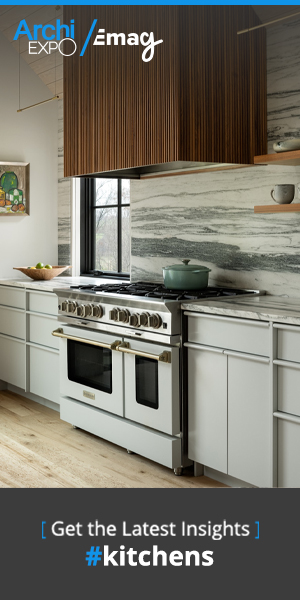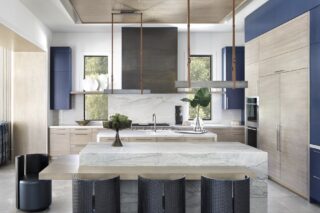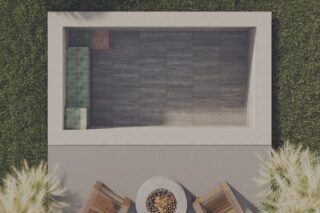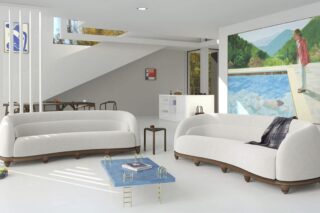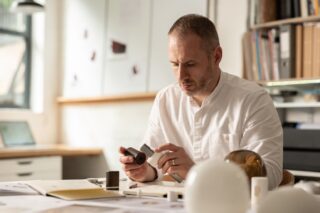The Phoenix project in West Oakland combines AI-powered cloud-based technology from Autodesk with innovative mycelium-based materials to rapidly construct sustainable, affordable housing.
A new initiative known as “The Phoenix”, unveiled at the AU2023 Conference hosted by Autodesk, aims to tackle the global housing crisis and promote sustainable living. This project, a collaboration among MBH Architects, Factory_OS, Autodesk, Ecovative, and Heintges, Kreysler & Associates, promises to transform a long-abandoned industrial site in West Oakland into a beacon of affordable and eco-friendly housing.
The story of The Phoenix begins at the former site of the Phoenix Ironworks Steel Factory, which was demolished in 1989. The five-acre plot of land between Interstate 880 and a BART track has remained underused, marred by congestion, noise, and pollution. Now, it is set to be revitalized with over 300 affordable residences that are both sustainable and cost-effective.
What sets The Phoenix apart is its innovative approach to construction and design. By leveraging modular construction techniques, Factory_OS can assemble the housing units in just 10 days—significantly faster than the traditional process, which can take nearly a year. This speed is made possible through Autodesk’s Design and Make Platform, which provides integrated, cloud-connected software solutions to enhance collaboration and efficiency.
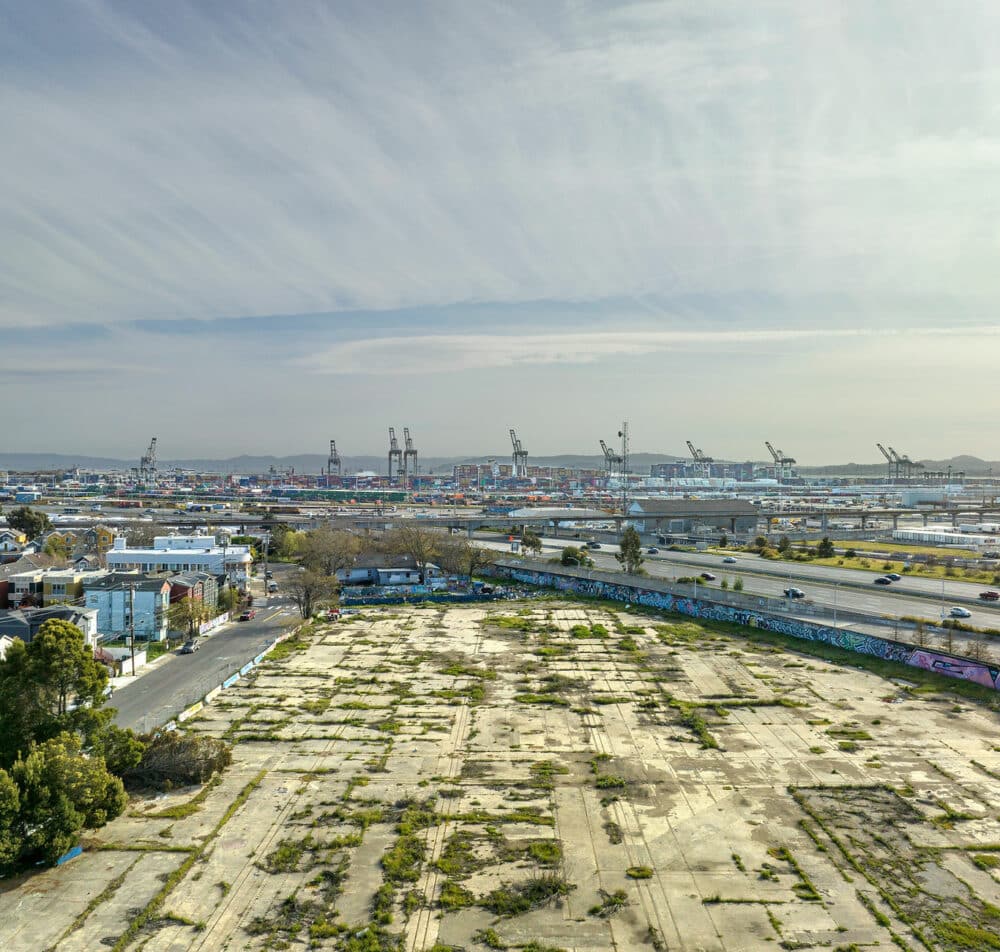
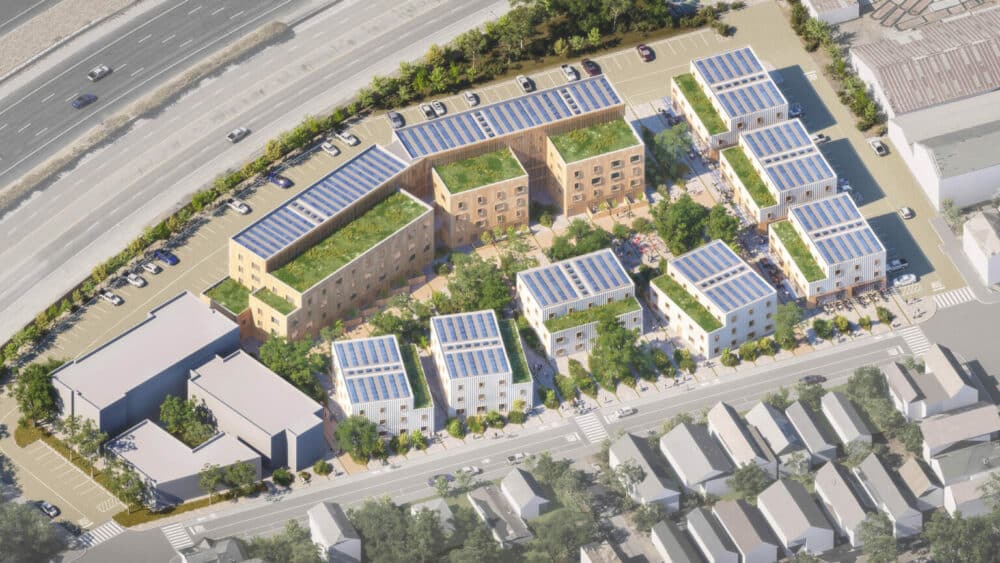
Combining Sustainable Materials with AI-powered Design
A major challenge in sustainable construction is the building façade, which often has a high carbon footprint and lengthy installation times. The Phoenix addresses this with a pioneering 36-foot-long prefabricated panel developed by Ecovative and Kreysler & Associates. These panels feature a core made from mycelium—a root-like structure of mushrooms—combined with agricultural byproducts such as corn stover, enclosed in a durable fiber-reinforced-polymer (FRP) shell.
This innovative façade system is carbon-negative, meaning it absorbs more carbon during production than it emits. The panels also offer five layers of performance, including structure, waterproofing, fire resistance, thermal insulation, and acoustic dampening. By installing these panels in a factory setting, The Phoenix can cut five months off the typical construction schedule.
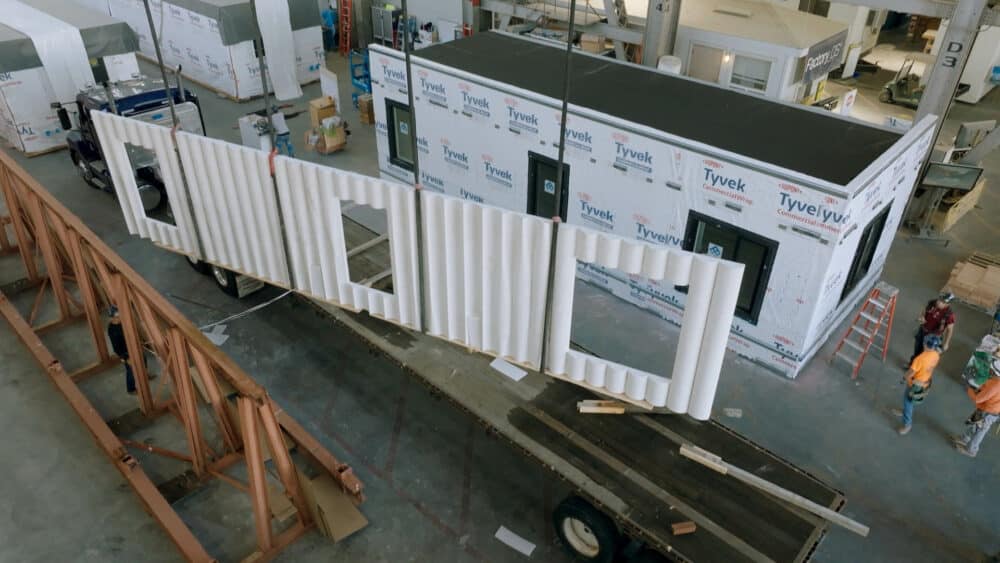

MBH Architects has utilized Autodesk Forma’s AI-powered predictive analyses to streamline the design process. For example, Forma’s Rapid Noise Analysis was used to assess the impact of highway noise on various configurations, informing the final placement of structures. This technology allowed the team to complete an initial design package in just six hours, a task that would typically take two weeks.
“Using Autodesk AI, we realized we could maximize our goals to provide homes that are sustainable, affordable, and comfortable for residents by leaning on predictive analyses to make more informed design decisions,” said Ryan McNulty, Principal Architect at MBH Architects. “Autodesk Forma empowered us to test the impact of shifting the location of a playground or greenspace, for example, on the project’s score for cost, carbon, and livability.”
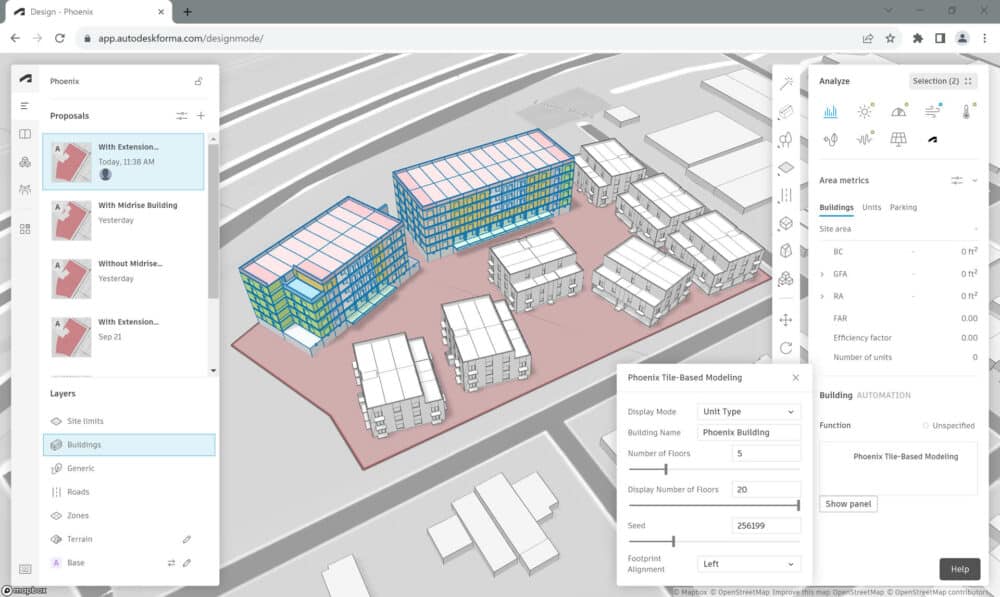

AI for Automation, Augmentation, and Vast Data Analysis
AI can improve the sustainability of projects and the built environment, notably, Autodesk AI facilitates the delivery of innovative projects, transforming both the industry and individual practices.
“AI can help with three things: automation, augmentation, and vast data analysis,” according to Amy Bunszel during a Podcast discussion on the topic. “The sustainability challenges in the world are also accelerating the need for change. The built environment is responsible for 42% of annual global CO2 emissions. Now is the time to leverage all the great technology we can to drive towards some of these important goals.”
Amy Bunszel, Executive Vice President of Architecture, Engineering, and Construction Design Solutions at Autodesk, and Ryan McNulty recently discussed the future of Artificial Intelligence (AI) in architectural practice, highlighting its impact on projects like The Phoenix. AI’s practical benefits for architecture also include reducing administrative tasks and enhancing design decisions, according to Ryan McNulty. He cited The Phoenix as an example of AI’s potential.
McNulty and Bunszel also outlined their plans for integrating AI into various projects and tools to support the evolving profession. They concluded by offering tips for architecture students on incorporating AI into their practice and sharing their visions for AI’s role in shaping sustainable and innovative environments.
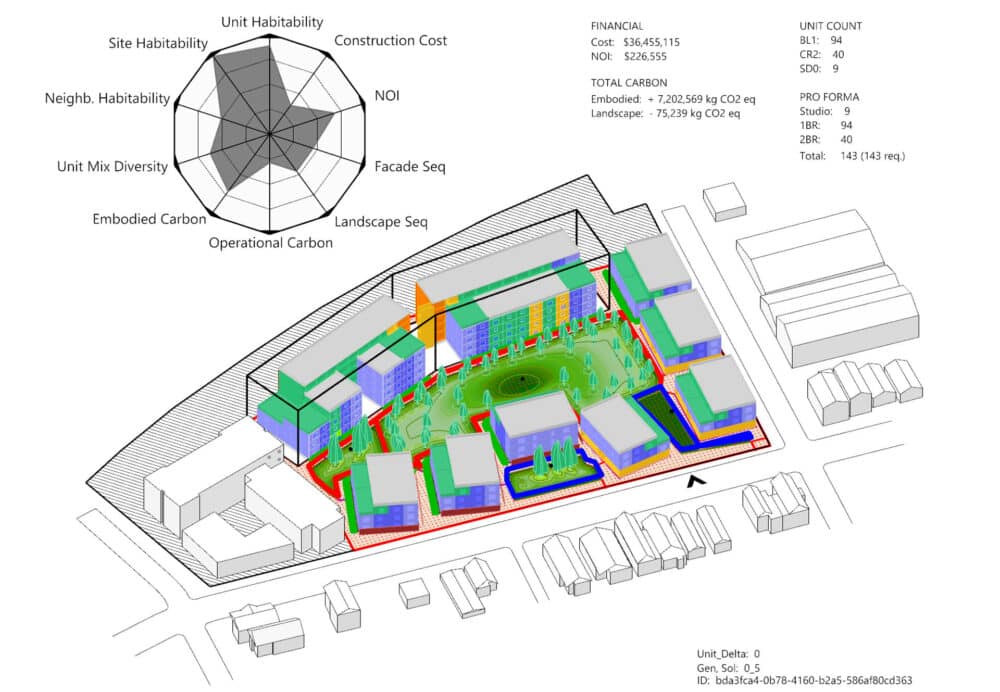
A Model for the Future
Artificial Intelligence (AI) has the potential to revolutionize building design and construction, particularly in the Bay Area, where housing shortages are critical. AI, exemplified by tools from Autodesk, can rapidly generate thousands of building designs considering multiple factors like cost and carbon footprint, thus significantly speeding up the design process.
The Phoenix project in Oakland serves as a case study, showing how AI reduced design time by six months. However, experts caution that AI is not a complete solution, as planning and permitting processes, which are notoriously slow and cumbersome in the Bay Area, remain significant hurdles. Despite AI’s ability to streamline design and potentially reduce costs, the overall impact on the housing crisis will be limited without addressing broader systemic issues such as funding and regulatory reform.
Still, the Phoenix represents a new standard for sustainable and affordable urban development. By combining rapid modular construction with environmentally friendly materials, The Phoenix demonstrates that creating economically and environmentally viable housing is possible.

